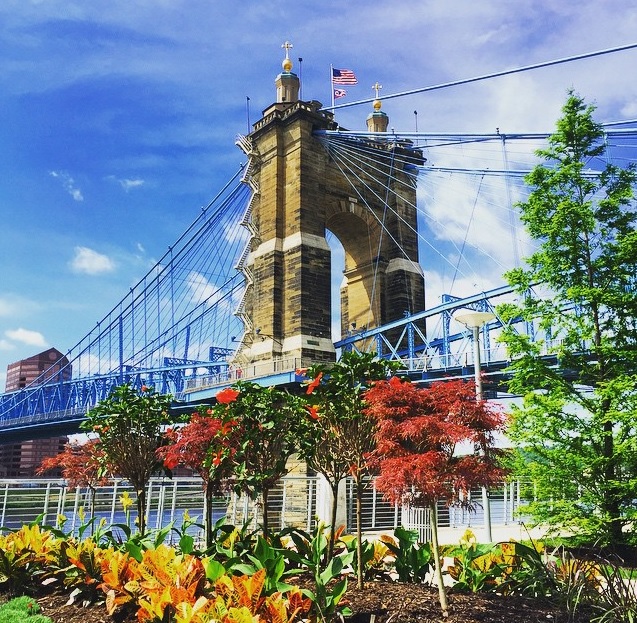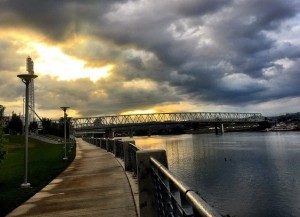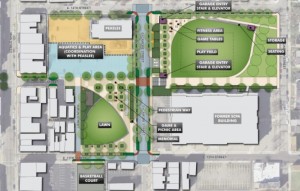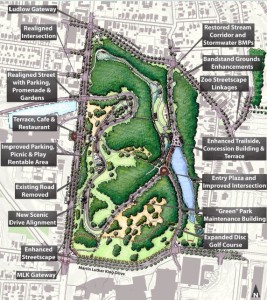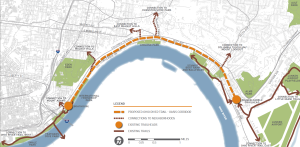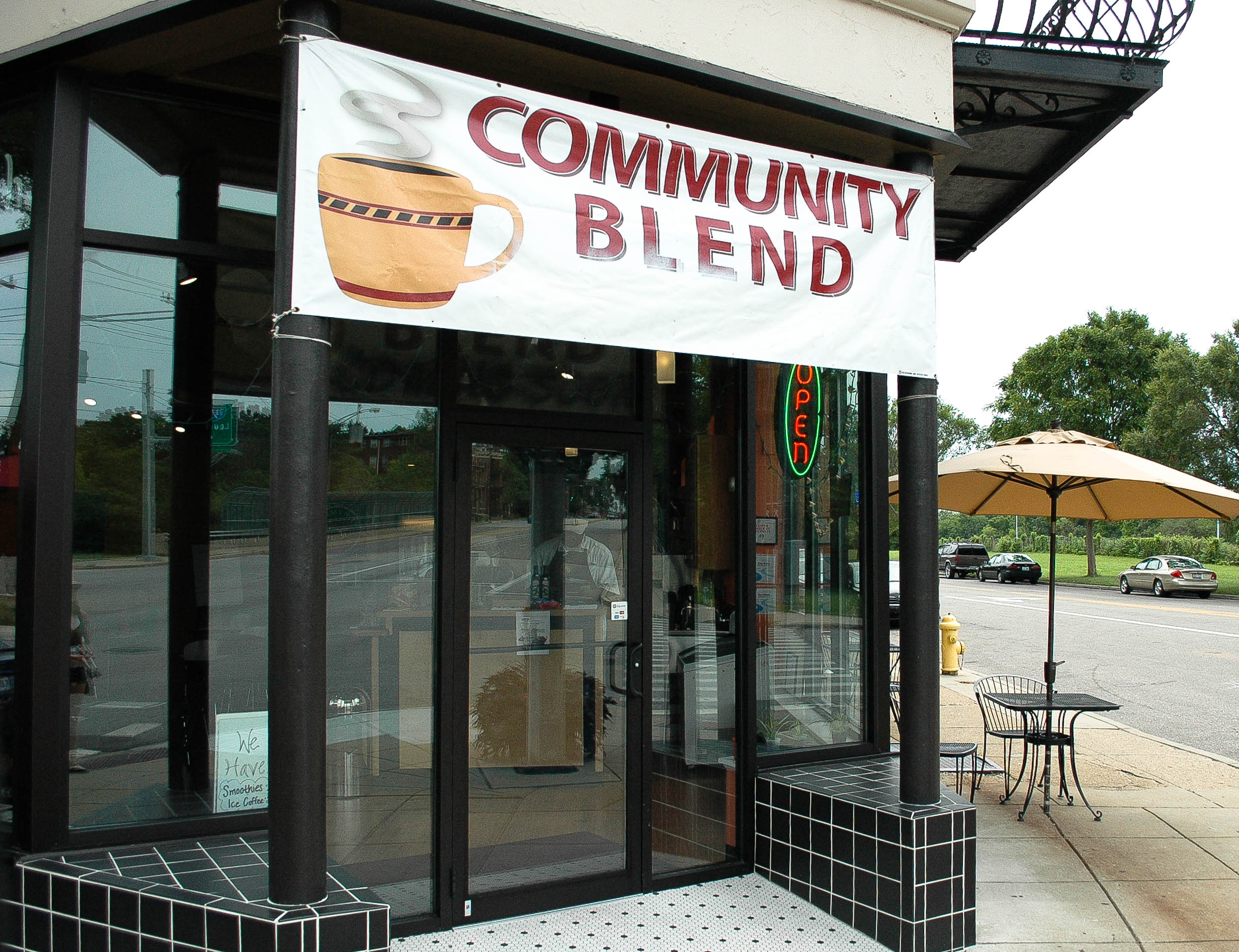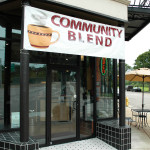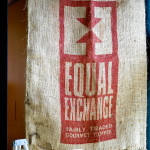A campaign to improve Cincinnati’s parks by raising the City’s property tax by 1 mill will “change the city for the better,” according to Cincinnati Mayor John Cranley (D).
Cranley made his remarks during the official launch of the Citizens for Cincinnati Parks levy campaign on Saturday morning at New Prospect Baptist Church in Roselawn.
The charter amendment would raise the City’s property tax rate to 13.1 mills and would bring in approximately $5.3 million a year. The move would require City Council to fund the Parks Department’s capital budget at its 2016 budget level, and approve bonds for capital improvements using levy revenue.
Proponents say that 75% of the levy revenue will be available for the City to borrow against in order to fund 13 designated capital projects selected by the mayor and city manager. The remaining 25% will go to system-wide maintenance and operating costs.
“We’re asking to voters to pass a very small property tax that we believe, for that small amount of money – $35 a year per $100,000 value – will increase property values and increase the quality of life for all Cincinnatians as we take the wonderful park system and we bring it to the neighborhoods,” Cranley said.
The group needs to collect approximately 6,000 signatures by August 15 to make it on to the November 3 ballot. Cincinnati Parks has not placed a levy on the ballot since 1927.
“We have decided that the only fair way to do this, if we’re going to be asking the taxpayers to pay more money, is to ask the citizens first to even let us put it on the ballot,” Cranley said. “At the end of the day, we’re putting this decision in the hands of the voters, and we believe the value proposition is there. We believe that this will build a better city.”
Vision needs funding
Board of Park Commissioners President Otto M. Budig, Jr. said that his organization has been charged with creating the best parks system in the country, but despite generous City funding and donor contributions, it continually finds itself short on money for major initiatives.
“We have had some difficulty in developing major projects that have long been needed,” he said. “I went to the mayor and I said, ‘We need these funds to bring about a new vision. You give us a vision, we’ll take care of the details.’ The mayor has given us the vision.”
While many of the projects are only in the conceptual stage at current time, the Citizens for Cincinnati Parks website says that they were chosen due to being the most shovel-ready, with the ability to be completed quickly.
Multipurpose recreational trails are a major component of the plan, including the Oasis River Trail ($8 million), Wasson Way ($12 million), Mill Creek Greenway Trail ($5 million), and the Ohio River West Trail ($6 million). The City also plans to work with the Cincinnati Off-Road Alliance to develop more than 20 miles of off-road trails in Mount Airy Forest ($11 million).
“The bike system that will be created as a result of this levy, off-road, which is a big thing for me – I think off-road is a much safer, dedicated path that doesn’t have as many accidents – the most extensive, bicycle urban path in America,” Cranley said.
The plan would also raise $10 million for a joint venture between the City, the University of Cincinnati, and Clifton Town Meeting to create a new master plan for Burnet Woods.
“As I often say, Burnet Woods – even more so that Washington Park – could be the Central Park of Cincinnati,” Cranley said. “If you think about Corryville, CUF, Clifton, Avondale…all surround this park. It’s the densest part of the city and it’s right across the street from 30,000 students. We can have the same impact with that park as we did with Washington Park.”
Other projects include:
- Developing part of the 20-acre New Prospect Baptist Church grounds into a communal programming center, athletic fields, and an urban camp site that would cost $8 million;
- A public-private partnership with Western & Southern Financial Group that would provide $5 million to renovate and reprogram Lytle Park;
- $5 million for the redevelopment of a portion of the former Mercy Hospital complex in Westwood into athletic fields and green space for an expanded Oskamp Park;
- A $5 million redesign of Ziegler Park in Over-the-Rhine/Pendleton, in conjunction with the Cincinnati Center City Development Corporation (3CDC);
- $4 million for streetscape and roadway improvements surrounding Christ Hospital and improvements to Inwood Park in Mount Auburn;
- $2 million for the preservation of the historic King Studios site and development of a small café/museum in Evanston;
- $2 million for upgrades around Westwood Town Hall and Epworth Avenue; and
- $1.8 million for a new boat dock/marina at Smale Riverfront Park.
“Now we have this new vision,” said Parks Director Willie Carden, who already has overseen the amazing transformations at Smale Riverfront Park and Washington Park, among others. “The vision brings ‘parkonomics’, partnerships to the neighborhoods. We can do this. We can make this a safer, healthier community, but we need your help.”
